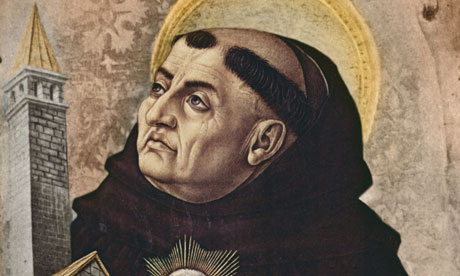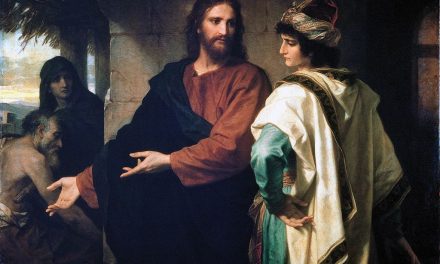This post is part of a series on the Faith of Theologians. Read the introduction here and Dana’s post here. Read Charlie and Emily’s post here and here.
I grew up in South Carolina. My dad was a Baptist. My mom was Catholic but had not been practicing for some time. Of five kids, I was the only one raised Catholic, and with only patchwork catechesis at that. It was a mixture of the Baltimore Catechism, generic 1970s spirituality, and Red State Libertarianism. I also spent my entire childhood in a hotbed of anti-Catholicism (Ever heard of Bob Jones?). It wasn’t until high school that I had any other friends who were Catholic. When my mom and I went to mass, it was at a traditional parish almost an hour away, so it wasn’t like the parish was the center of our life.
When I was around 12, it was clear I had to make some decisions about my faith. At that point, I was becoming more aware of the anti-Catholic rhetoric of my peers and their parents. In addition, I was becoming increasingly disenchanted with the biblical literalism and especially the anti-science rhetoric of the religious people around me. I clearly had to reject the worldview of the biblical literalists but I didn’t yet know if my own Catholicism offered anything better. The first conscious milestone of my journey of faith was learning that it did.
I don’t remember how I discovered Thomas Aquinas (it probably had something to do with my grandfather who was a devotee) but it was around this time that I was introduced to some of his unique contributions to theology, especially his emphasis on the compatibility of faith and reason. How young I was and how little, to be sure, I understood of who Thomas was and what he did, but I was in love! I tried to take Thomas as my confirmation name, which my mother nixed (I took Brigid instead simply because she turned water to beer.).
When I discovered Thomas, I didn’t quite get theology yet, but I learned rapidly how to defend the faith rationally. Unfortunately, the more I learned of my Catholic faith, the more hateful I became towards my Protestant brethren, who I considered arch-enemies in the faith. I spent lunchtime conversations systematically dismantling biblical literalism by sarcastically pointing out its inconsistencies and its inherent unreasonableness. I met every critique of Catholicism as un-biblical and superstitious with an appeal to some neglected passage of scripture or Christian history. I vowed that when I could, I would escape to a Catholic ghetto, marry a devout Catholic (or enter religious life which I did consider seriously, even living in a religious community for three months), and do what I could to defend the faith. I was on the path to becoming a radical.
It was Thomas’ intercession that directed me towards a much more moderate stance. Studying theology, one comes to realize the complexity of every issue. In good courses of theological study, one is forced to grapple with the very best opposing arguments that are out there. One even learns how to make opposition arguments. I was blessed to have wonderful teachers who always challenged me to never accept anything uncritically, and who never let me rest self-satisfied that I had the answers. This is what Thomas did. I try to make his model my model. In teaching, I try to communicate that what the Church teaches is reasonable and appealing. I teach my students who do disagree to do so in a spirit of respect. In position papers, I make all of my students argue both sides of an issue before stating their own stance.
Marrying a Protestant (isn’t God funny?) has also helped mollify my radicalism. My husband Scott is a beautiful Christian committed to simple living and abundant giving (one of his heroes is Ron Sider) and to a consistent ethic and theology. While we are raising our daughter and any future children Catholic, we try and live out our hope for Christian unity by worshiping and praying together. We go to mass on Sundays at 7:30 and then at 10:00, we head over to the Protestant church. And since my husband too is a theologian, I am always kept on my toes in our internecine disputatios! Through my marriage, I have come to see that Protestants are not the enemy, and as my faith has become less defined by my opposition to Protestantism, I have seen it blossom into a more distinctly catholic faith. But I have also become more proud and more grateful for my Roman Catholic faith which I do believe Christ’s true Church subsists in.
And while I am no longer a radical Catholic, I still value obedience to Church authority and strive to conform both my actions and my will to what the Church teaches. I find the teachings on life, sex, and justice to be particular sources of life for me. I feel blessed at this point in my life to not feel any particular conflict between my beliefs and the Magisterium. However, in the spirit of Thomas, I still love to play the “objection” card in conversations that seem a bit too monolithic. I have enormous respect for so many of my colleagues and their objections to certain teachings. I take their arguments seriously. I bring them to study and to prayer. I strive to accept humbly that the Church does change and to never make any particular teaching an idol. But the Church is my mother and I know of no other way to be a Christian apart from her. I love the Church dearly. I want her to be well. It is through her that I am led to Christ’s truth.
Even though I couldn’t choose him for my confirmation name, Thomas Aquinas remains my patron. As I have grown older, I have come to appreciate more his deep life of faith and rich spirituality (thanks Torrell!). For Thomas, theological study was not something separate from faith and piety, and I try to keep the two together in my own life as well as I live out my vocation. Theology is faith seeking understanding. It begins with faith, and remains nourished by faith. Participation in the sacraments, especially daily mass when I can, the rosary (which I say daily) and other Marian devotions, morning offerings, lectio divina . . . all of these are as critical to my vocation as a theologian as the time I spend studying, teaching, and writing. In fact, I would not be a theologian without these practices. I am explicit about my faith with my students. When it seems appropriate, I pray with individual students. I begin each class with a prayer. I take my daughter to daily mass on campus. And when anybody asks, I tell them how much I love the Church. Because I do.




(From a fellow Aquinas fangirl), thanks! So interesting to hear more of your story…
Thanks for this, Beth. Deeply moving as a story in its own right, and a beautiful encapsulation of what it means to be a theologian.